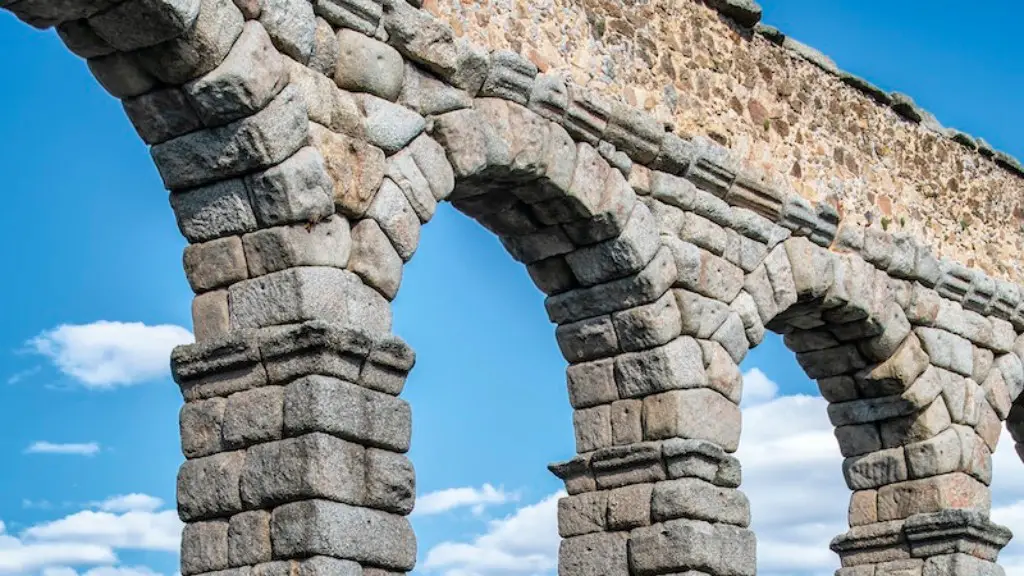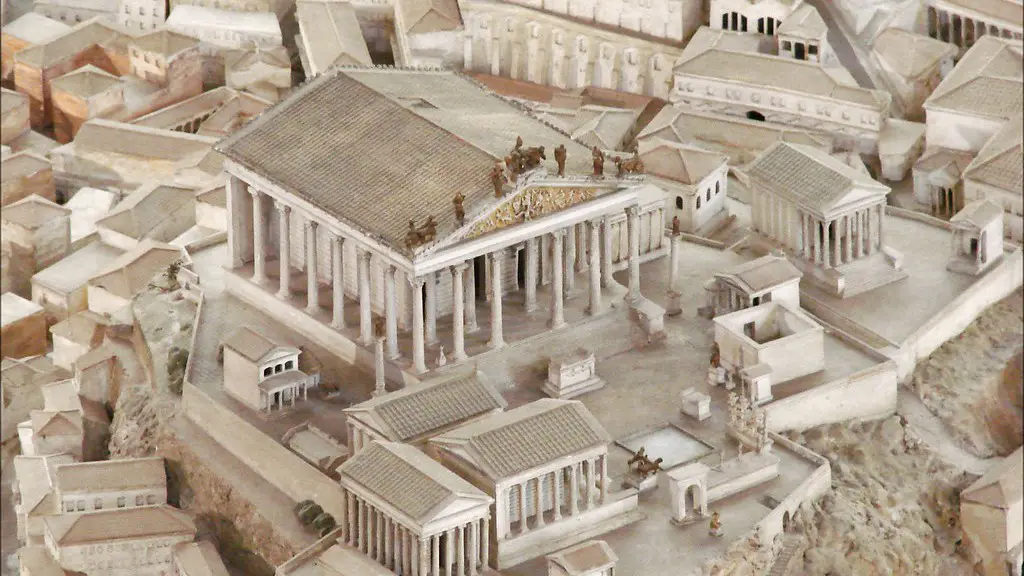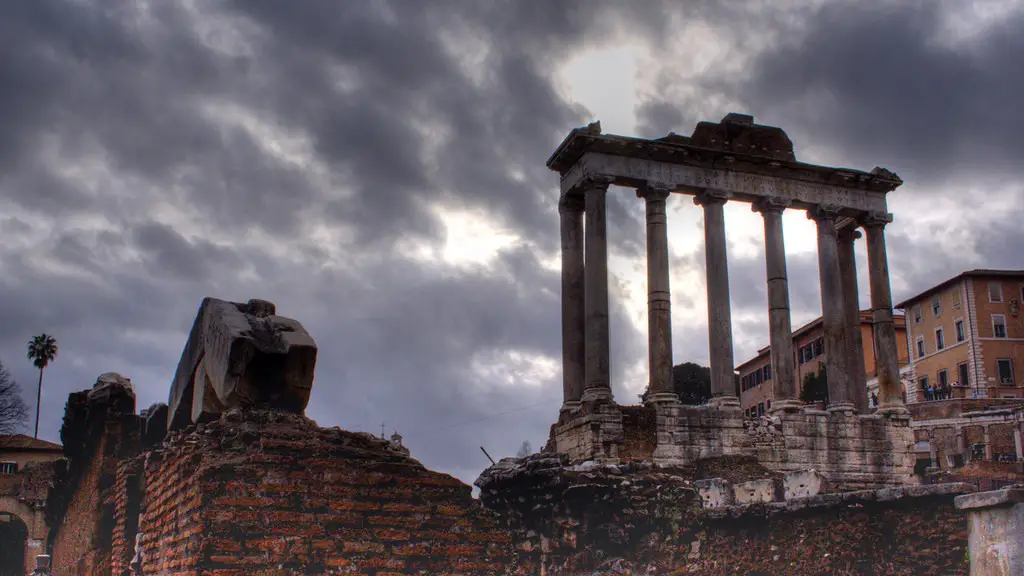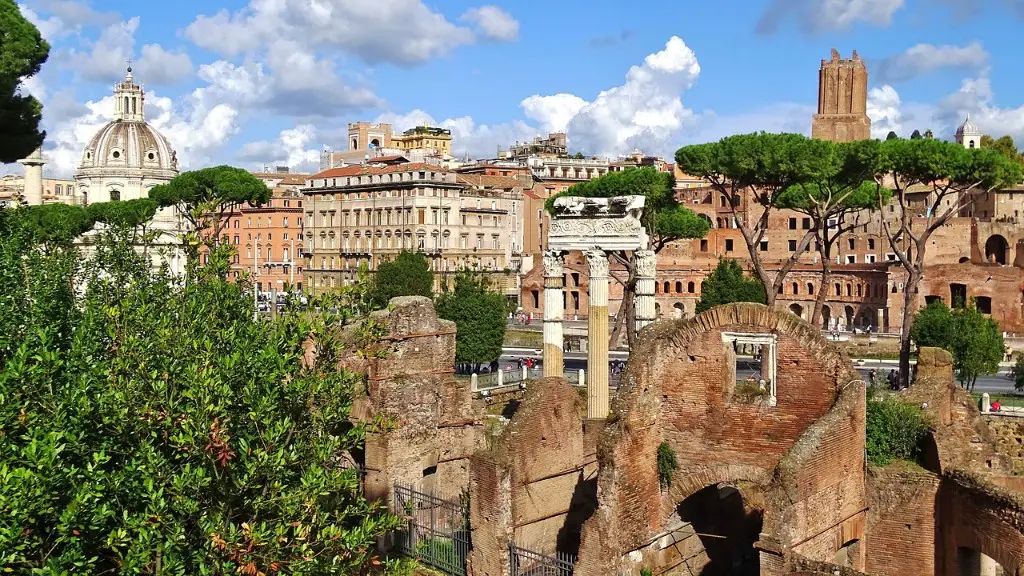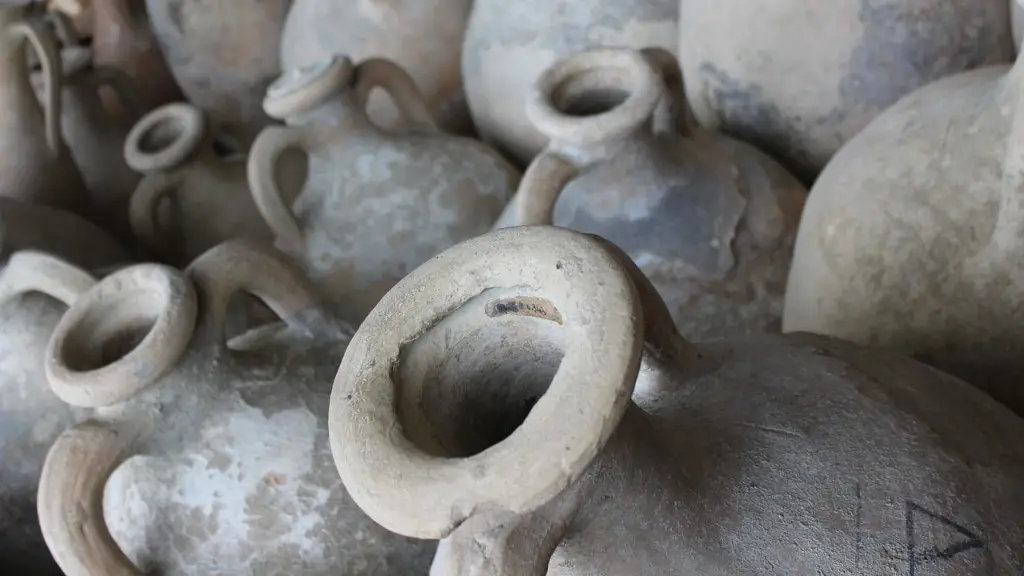Ancient Rome was, and arguably still is, one of the most culturally influential societies in the history of the world. Its economy, politics and social hierarchy have had a lasting impact on the world at large. At the base of this social hierarchy was the poor working class. But what was it called?
In Ancient Rome, the poor working class was known as the plebeians. The plebeian class was composed of laborers and small farmers, who were the lowest in the Roman social hierarchy.They had neither the power or the money to purchase Roman citizenship, so they were denied a number of the rights which their wealthier counterparts enjoyed. This resulted in a glimpse into the social and political inequalities which characterized Ancient Rome and by extension, much of the Western world.
Rights and Privileges
Plebeians were denied most of the rights and privileges enjoyed by the upper classes. This included such basic rights as the right to vote and to hold public office. They were also excluded from certain religious ceremonies and unable to own land. This limiting of rights and privileges extended even to military service as in some cases upper class Romans were given preferential treatment, leaving the plebeians to fill the ranks of the lower and more dangerous positions.
On the flip side, one great benefit the plebeians had was the right to work in a variety of professions. While the upper classes were limited to only a few occupations, such as politics and the military, plebeians could take up jobs such as farmers, carpenters, joiners, smiths and bakers, among many others.
Daily Life
Plebeians lived simple, labor-filled lives. Most of their days were spent in the labor, much of it manual, necessary to sustain their families. In terms of housing, most plebeian dwellings were small and simple. Built of stone, mud or wood, these dwellings usually did not have many, if any, luxuries. They generally consisted of a single room, with a fire for warmth and cooking and a bed of straw for sleep.
On the whole, plebeian lives in Ancient Rome were hard, dictated by the need for labor and the low social status. But in spite of this, the plebeians managed to make the best of their situation, making bold strides in order to stand up for their rights, leading to the founding of their own political party and the eventual granting of their full rights.
Achievements
Despite their limited rights and privileges, the plebeians made great strides toward advancing their causes. The most famous example is the movement that the plebeians instigated in order to obtain their full rights as Roman citizens. This resulted in what came to be known as the Conflict of the Orders.
During this period, the plebeians created their own political party called the Plebeian Council in order to protest their unequal status by refusing to fight in the wars of their wealthy upper class Roman counterparts.This struggle lasted for centuries until finally, after a series of heated debates, the plebeians were granted their full citizenship rights in the late 4th century B.C.
Legacy
The legacy of the plebeians in Ancient Rome has been an enduring one. Though the plebeians were unable to participate in the politics and power of Rome at the time, they nevertheless left their mark through their struggle to achieve their rights as citizens. They serve as an example to us all of the power of standing up for what is right, no matter the odds that stand in the way.
Contemporary Political Implications
Today, the struggle of the plebeians for their rights is still relevant as social and political inequalities continue to plague democracies across the world. It is a clear reminder that the fight for equality is one that is ongoing, and that the rights of those at the bottom of the social ladder should never be taken for granted.
Conclusions
In conclusion, the plebeians of Ancient Rome were subject to a great deal of inequality and injustice, due to their low social status and lack of rights. Fortunately, they were able to stand up for their rights and fight for their full citizenship, leaving a lasting legacy in the process. Despite this progress, the inequality and injustice that were so prevalent in Ancient Rome continue to exist in many parts of the world today.
Economics
It is clear that economics had a sizable impact on the plebeians of Ancient Rome. This is evidenced by the fact that plebeians were denied landowning rights, as well as the fact that their livelihoods were largely dependent on manual labor. This, coupled with the restrictions to military positions, gives us a clear view into the economic disadvantages that the plebeians endured due to their social position.
Moreover, the disparity between the wealth of the upper classes and that of the plebeians is quite stark. This disparity was even more pronounced when wealth in the form of land or property was taken into consideration. This gap in wealth between the two classes was indicative of the deep-set economic inequalities which characterized the Roman social order.
Religion
Religion played an important role in the lives of the plebeians in Ancient Rome. This is evidenced by the fact that they were excluded from certain religious ceremonies, such as the religious fasts and processions which were common in the Roman Republic. Furthermore, they were also excluded from certain religious offices, such as the priesthood, which were largely open to the upper classes.
The exclusion of plebeians from certain religious duties was yet another way that their social status was kept in check. This exclusion furthermore reinforced the idea that the plebeians were of lower standing in society, unable to participate in certain activities which were limited to the prerogative of the upper classes.
Politics
Finally, politics played an integral role in the lives of the plebeians of Ancient Rome. They were denied the right to vote or hold public office, a fact which serves to illustrate just how far their influence was limited even in the political sphere. Furthermore, the military was also out of their reach as the upper classes were favoured for positions there.
In addition, the struggle between the Conflict of the Orders and the eventual granting of plebeian rights is indicative of the need for and inherent power of political action. The plebeians realised that they had a lack of real power in politics, and so they used the power of politics to gain the respect and rights they deserved.
